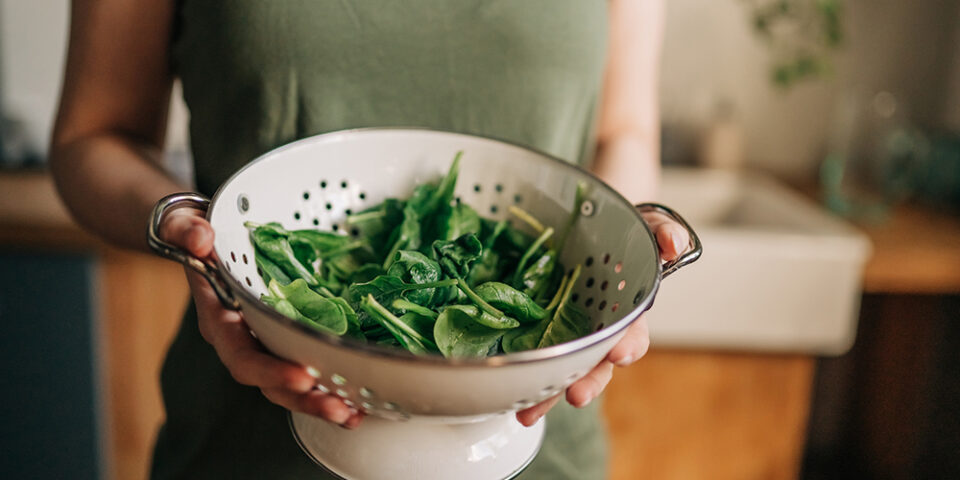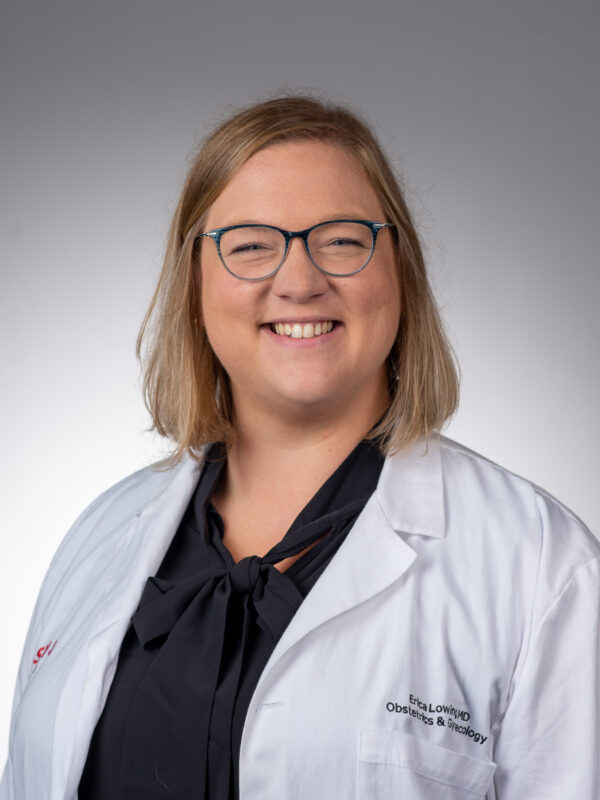Do women have nutritional needs that men don’t?
One thing that is normally left out of the pages upon pages of advice about healthy eating? Nutritional needs for women. The truth is women have nutritional needs that men don’t.
Gynecologist Erica Lowing, MD, discussed the unique nutritional needs women have and how you can get the nutrients you need in your everyday life.
The five building blocks of women’s nutrition
“When you consider the specific nutritional needs women have, think about five things that really should make up the building blocks of a healthy way of eating,” said Dr. Lowing. “Those five things are fiber, folic acid, iron, calcium and vitamin D.”
Fiber
“A lot of women don’t get enough fiber,” said Dr. Lowing. “Fiber, considered low glycemic and primarily sourced from plants, passes through our digestive system without being changed, helps keep blood sugar low and is important to maintain colon health.”
Women are more naturally prone to constipation, which can lead to persistent pelvic pain, something Dr. Lowing said her patients have often brought up with her. One of the most effective solutions for that pain has been advising patients to consciously work on getting more fiber in their diets.
Fiber is commonly found in fruits, including berries of all kinds. You can also get lots of healthy fiber from eating leafy greens and other vegetables, beans, lentils and other natural plant proteins.
Folic acid
“Many who are pregnant, or who are actively looking to become pregnant, will hear plenty about making sure they take a multivitamin with folic acid in it,” said Dr. Lowing. “But getting enough folic acid is a good idea at any point during childbearing age, starting at least three months before you begin trying to get pregnant.”
Dr. Lowing recommended taking a prenatal vitamin with at least 400 micrograms of folic acid, plus another 600 mcg separately. The rest of what you need you’ll be able to get from your diet.
Folic acid is important, helping with spinal cord and brain development during gestation.
Iron
“Iron is very important for everyone, but especially women,” said Dr. Lowing. “The most common cause of anemia is iron deficiency anemia, and if you have heavy periods, you may be losing a lot of iron each month.”
Those who get pregnant will also need more iron during gestation, both to keep up your own red blood cells and to help the fetus to develop its own. Your iron needs will lessen once you become post-menopausal and stop having periods, but the better your foundation beforehand, the better your health later on.
Calcium
“Calcium helps to build our bones and keep them strong. Women have a higher risk of developing osteoporosis, and getting enough calcium when you are young helps to minimize the effects of bone density loss as you age.”
Vitamin D
“Vitamin D, is required for you to absorb calcium and phosphate and build healthy bones. Nearly half of people in the United States don’t get enough of it, and this can hurt your bone health later.”
Dr. Lowing recommended getting about 600 international units per day until age 70, and then upping that amount to 700 international units per day after that.
Health screenings help you know what you need
“I recommend speaking with your provider about what screening tests you qualify for based on your history. This may mean getting a basic CBC panel and checking for anemia, especially if you have heavy periods,” said Dr. Lowing. “You may also need to get a baseline A1C to check for your risk of developing diabetes.”
You can find more on which health screenings may be right for you right here.
Choose a caring, trusted OB/GYN
Find a provider who’s right for you by viewing their online profiles, star ratings and reviews.
Find an OB/GYN

